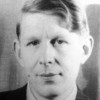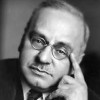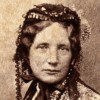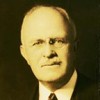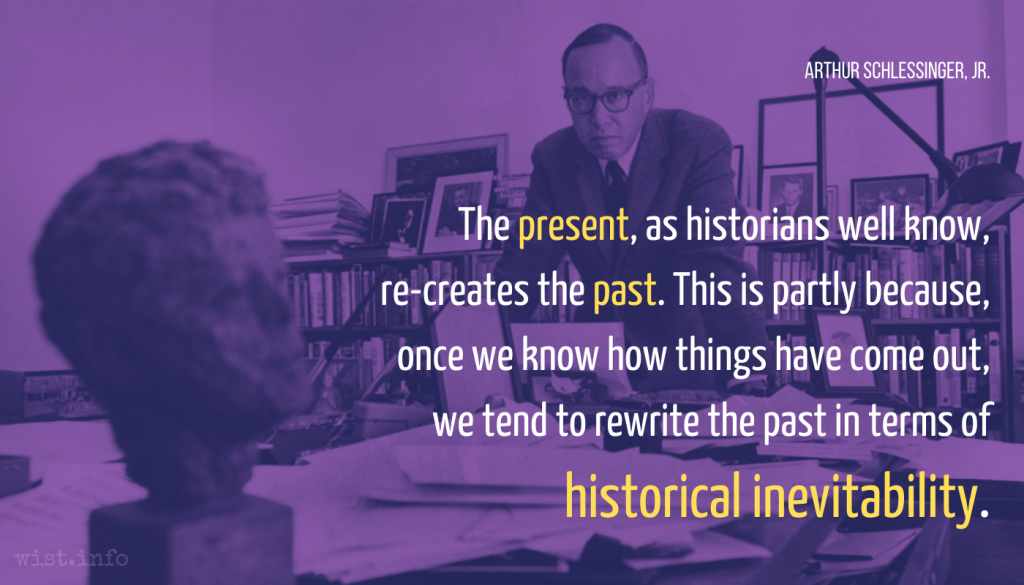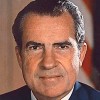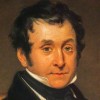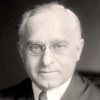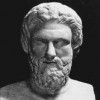We must accept finite disappointment, but we must never lose infinite hope. Only in this way shall we live without the fatigue of bitterness and the drain of resentment.
Martin Luther King, Jr. (1929-1968) American clergyman, civil rights leader, social activist, preacher
Strength to Love, ch. 10 “Shattered Dreams,” sec. 2 (1963)
(Source)
Ignorance is preferable to error, and he is less remote from the truth who believes nothing than he who believes what is wrong.
Thomas Jefferson (1743-1826) American political philosopher, polymath, statesman, US President (1801-09)
Notes on the State of Virginia, Query 6 (1782)
(Source)
Administrivia: We are experiencing hemispherical difficulties … please stand by …
I realized yesterday that WIST has been “dark” for a week and a half. My apologies — I’ve been on business in Australia and South America, which has been both fascinating and exhausting and otherwise disorienting enough to have broken my daily WIST-posting habit.
We will resume our normal quotational broadcasts on Monday.
My wife should be as much free from suspicion of a crime as she is from a crime itself.
[Meos tam suspicione quam crimine iudico carere oportere.]
Julius Caesar (100-44 BC) Roman general and statesman [Gaius Julius Caesar]
In Suetonius, Life of Caesar
Popularly, "Caesar’s wife must be above reproach" or "beyond reproach."
Caesar was called to be a witness against Clodius, who was charge with having defiled sacred rites and having an affair with Pompeia, Caesar's wife. Caesar said he had investigated and found out nothing to prove the Pompeia's fidelity. When asked why, then, he had divorced her, he gave this answer.
Alt. trans.: "I judge it necessary for my kin to be as free from suspicion as from the charge of wrongdoing."
Alt. trans.: "I wished my wife to be not so much as suspected." [in Plutarch, “Caesar,” Parallel Lives [tr. Dryden (1693)]].
Another belief of mine: that everyone else my age is an adult, whereas I am merely in disguise.
Margaret Atwood (b. 1939) Canadian writer, literary critic, environmental activist
Cat’s Eye, Part 2 (1988)
(Source)
They rejoiced competing with all Hellenes, since oblivion belongs to those who do not take part.
Pindar (c. 522–443 BC) Greek lyric poet
Fourth Isthmian Ode (479 BC)
I like too many things and get all confused and hung-up running from one falling star to another till I drop. This is the night, what it does to you. I had nothing to offer anybody except my own confusion.
Jack Kerouac (1922–1969) Canadian-American novelist and poet
On the Road, Part 2, ch. 4 (1957)
(Source)
“Never laugh at live dragons, Bilbo you fool!” he said to himself, and it became a favorite saying of his later, and passed into a proverb.
J.R.R. Tolkien (1892-1973) English writer, fabulist, philologist, academic [John Ronald Reuel Tolkien]
The Hobbit, ch. 12 “Inside Information” (1937)
(Source)
A multitude of words is probably the most formidable means of blurring and obscuring thought. There is no thought, however momentous, that cannot be expressed lucidly in 200 words.
Remove justice, and what are kingdoms but gangs of criminals on a large scale?
[Remota itaque iustitia quid sunt regna nisi magna latrocinia?]Augustine of Hippo (354-430) Christian church father, philosopher, saint [b. Aurelius Augustinus]
City of God [De Civitate Dei], Book 4, ch. 4 (4.4) (AD 412-416) [tr. Bettenson (1972)]
(Source)
(Source (Latin)). Alternate translations:Set justice aside, then, and what are kingdoms but fair thievish purchases?
[tr. Healey (1610)]Justice being taken away, then, what are kingdoms but great robberies?
[tr. Dods (1871)]In the absence of justice, what is sovereignty but organized brigandage?
[tr. Zema/Walsh (1950)]And so if justice is left out, what are kingdoms except great robber bands?
[tr. Green (Loeb) (1963)]Justice removed, then, what are kingdoms but great bands of robbers?
[tr. Dyson (1998)]Remove justice, then, and what are kingdoms but large gangs of robbers?
[tr. Babcock (2012)]In the absence of justice, what is sovereignty but organized robbery?
[E.g.]
We rarely find anyone who can say he has lived a happy life, and who, content with his life, can retire from the world like a satisfied guest.
[Inde fit ut raro, qui se vixisse beatum
dicat et exacto contentus tempore vita
cedat uti conviva satur, reperire queamus.]
Ridicule is the only weapon which can be used against unintelligible propositions. Ideas must be distinct before reason can act upon them; and no man ever had a distinct idea of the Trinity. It is the mere Abracadabra of the mountebanks calling themselves the priests of Jesus.
Thomas Jefferson (1743-1826) American political philosopher, polymath, statesman, US President (1801-09)
Letter (1816-07-30) to Francis Adrian Van der Kemp
(Source)
The belief in the possibility of a short decisive war appears to be one of the most ancient and dangerous of human illusions.
Robert Wilson Lynd (1879-1949) British writer, literary essayist, journalist, and Irish nationalist
(Attributed)
History is invaluable in increasing our knowledge of human nature because it shows how people may be expected to behave in new situations. Many prominent men and women are completely ordinary in character and only exceptional in their circumstances.
If one really wishes to know how justice is administered in a country, one does not question the policemen, the lawyers, the judges, or the protected members of the middle class. One goes to the unprotected — those, precisely, who need the law’s protection most! — and listens to their testimony.
Sex is hardly ever just about sex.
Shirley MacLaine (b. 1934) American actress, dancer, activist, author
(Attributed)
I told you that “juvenile delinquent” is a contradiction in terms. “Delinquent” means “failing in duty.” But duty is an adult virtue — indeed a juvenile becomes an adult when, and only when, he acquires a knowledge of duty and embraces it as dearer than the self-love he was born with. There never was, there cannot be a “juvenile delinquent.” But for every juvenile criminal there are always one or more adult delinquents — people of mature years who either do not know their duty, or who, knowing it, fail.
I know of no country, indeed, where the love of money has taken stronger hold on the affections of men, and where the profounder contempt is expressed for the theory of the permanent equality of property.
Everyone … has a feeling of inferiority. But the feeling of inferiority is not a disease; it is rather a stimulant to health, normal striving and development. It becomes a pathological condition only when the sense of inadequacy overwhelms the individual and, far from stimulating him to useful activity, makes him depressed and incapable of development.
The private detective of fiction is a fantastic creation who acts and speaks like a real man. He can be completely realistic in every sense but one, that one sense being that in life as we know it such a man would not be a private detective.
There is no absurdity, however palpable, which cannot be firmly implanted in the minds of all, if only one begins to inculcate it before the early age of six by constantly repeating it to them with an air of great solemnity.
[Es giebt keine Absurdität , die so handgreiflich wäre , daß man sie nicht allen Menden fest in den Kopf regen könnte, wenn man nur schon vor ihrem sechsten Jahre anfienge, sie ihnen einzuprägen, indem manunabläffig und mit feierlichstem Ernst sie ihnen vorsagte.]
Arthur Schopenhauer (1788-1860) German philosopher
Parerga and Paralipomena, Vol. 2, ch. 26 “Psychological Observations [Psychologische Bemerkungen],” § 344 (1851) [tr. Payne (1974)]
(Source)
(Source (German)). Alternate translations:There is no absurdity so palpable but that it may be firmly planted in the human head if you only begin to inculcate it before the age of five, by constantly repeating it with an air of great solemnity.
[tr. Saunders (1851)]There is no absurdity, however palpable it may be, which may not be fixed in the minds of all men, if it is inculcated before they are six years old by continual and earnest repetition.
[tr. Dircks(1897)]
I come from under the hill, and under the hills and over the hills my paths led. And through the air. I am he that walks unseen. […] I am the clue-finder, the web-cutter, the stinging fly. I was chosen for the lucky number. […] I am he that buries his friends alive and drowns them and draws them alive again from the water. I came from the end of a bag, but no bag went over me. […] I am the friend of bears and the guest of eagles. I am Ring-winner and Luckwearer; and I am Barrel-rider.
J.R.R. Tolkien (1892-1973) English writer, fabulist, philologist, academic [John Ronald Reuel Tolkien]
The Hobbit, ch. 12 “Inside Information” [Bilbo] (1937)
(Source)
Bilbo's "riddling talk" epithets, given to Smaug in "the way to talk to dragons, if you don't want to reveal your proper name (which is wise), and don't want to infuriate them by a flat refusal (which is also very wise)."
In products of the human mind, simplicity marks the end of a process of refining, while complexity marks a primitive stage. Michelangelo’s definition of art as the purgation of superfluities suggests that the creative effort consists largely in the elimination of that which complicates and confuses a pattern.
The inherited churchly institutions in the United States are typically engaged in inducing people to join, support and attend church … in order to worship the church, not to glorify and enjoy God, and in order to enhance some churchly cult, not to esteem and enact the Gospel. The sanction for this appeal is a venerable one — the sale of indulgences. [People] are persuaded that by serving the church, by spending time and money and talent on the church, they can accomplish and exchange for merit and gain a justified status with God.
William Stringfellow (1928-1985) American lay theologian
Imposters of God: Inquiries into Favorite Idols
With a view to poetry, an impossible thing that is believable is preferable to an unbelievable thing that is possible.
[πρός τε γὰρ τὴν ποίησιν αἱρετώτερον πιθανὸν ἀδύνατον ἢ ἀπίθανον καὶ δυνατόν.]
Aristotle (384-322 BC) Greek philosopher
Poetics [Περὶ ποιητικῆς, De Poetica], ch. 24 / 1461b.11 (c. 335 BC) [tr. Sachs (2006)]
(Source)
Original Greek. Alternate translations:
- "The poet should prefer probable impossibilities to improbable possibilities." [tr. Butcher (1895)]
- "A likely impossibility is always preferable to an unconvincing possibility." [tr. Bywater (1909)]
- "You should prefer a plausible impossibility to an unconvincing possibility." [tr. Margoliouth (1911)]
- "For poetic effect a convincing impossibility is preferable to that which is unconvincing though possible." [tr. Fyfe (1932)]
- "Probable impossibilities are preferable to implausible possibilities." [tr. Halliwell (1986)]
- "In relation to the needs of the composition, a believable impossibility is preferable to an unbelievable possibility." [tr. Janko (1987)]
- "With respect to the requirement of art, the probable impossible is always preferable to the improbable possible."
- "For the purposes of poetry a convincing impossibility is preferable to an unconvincing possibility."
Let the one fight for his flag, and the other for his ideal, and let them both imagine that they are fighting for the country; the strife will be colossal.
[Que l’un combatte pour son drapeau, et que l’autre combatte pour son idéal, et qu’ils s’imaginent tous les deux combattre pour la patrie; la lutte sera colossale.]
No experiment can be more interesting than that we are now trying, and which we trust will end in establishing the fact, that man may be governed by reason and truth. Our first object should therefore be, to leave open to him all the avenues to truth. The most effectual hitherto found, is the freedom of the press. It is therefore, the first shut up by those who fear the investigation of their actions.
Thomas Jefferson (1743-1826) American political philosopher, polymath, statesman, US President (1801-09)
Letter to John Tyler (28 Jun 1804)
(Source)
If the Divine call does not make us better, it will make us very much worse. Of all bad men religious bad men are the worst. Of all created beings the wickedest is one who originally stood in the immediate presence of God.
C. S. Lewis (1898-1963) English writer, literary scholar, lay theologian [Clive Staples Lewis]
Reflections on the Psalms, ch. 3 “The Cursings” (1958)
Full text.
The present, as historians well know, re-creates the past. This is partly because, once we know how things have come out, we tend to rewrite the past in terms of historical inevitability.
I do not know many Negroes who are eager to be “accepted” by white people, still less to be loved by them; they, the blacks, simply don’t wish to be beaten over the head by the whites every instant of our brief passage on this planet. White people will have quite enough to do in learning how to accept and love themselves and each other, and when they have achieved this — which will not be tomorrow and may very well be never — the Negro problem will no longer exist, for it will no longer be needed.
What stuck in the minds of these men who had become murderers was simply the notion of being involved in something historic, grandiose, unique (“a great task that occurs once in two thousand years”), which must therefore be difficult to bear. This was important, because the murderers were not sadists or killers by nature; on the contrary, a systematic effort was made to weed out all those who derived physical pleasure from what they did. The troops of the Einsatzgruppen had been drafted from the Armed S.S., a military unit with hardly more crimes in its record than any ordinary unit of the German Army, and their commanders had been chosen by Heydrich from the S.S. élite with academic degrees. Hence the problem was how to overcome not so much their conscience as the animal pity by which all normal men are affected in the presence of physical suffering. The trick used by Himmler — who apparently was rather strongly afflicted by these instinctive reactions himself — was very simple and probably very effective; it consisted in turning these instincts around, as it were, in directing them toward the self. So that instead of saying: What horrible things I did to people!, the murderers would be able to say: What horrible things I had to watch in the pursuance of my duties, how heavily the task weighed upon my shoulders!
A really efficient totalitarian state would be one in which the all-powerful executive of political bosses and their army of managers control a population of slaves who do not have to be coerced because they love their servitude. To make them love it is the task assigned, in present-day totalitarian states, to ministries of propaganda, newspaper editors and schoolteachers.
A strange temptation attends upon man: to keep his eye on pleasures, even when he will not share in them; to aim all his morals against them. This very year a lady (singular iconoclast!) proclaimed a crusade against dolls; and the racy sermon against lust is a feature of the age. I venture to call such moralists insincere. At any excess or perversion of a natural appetite, their lyre sounds of itself with relishing denunciations; but for all displays of the truly diabolic — envy, malice, the mean lie, the mean silence, the calumnious truth, the back-biter, the petty tyrant, the peevish poisoner of family life — their standard is quite different. These are wrong, they will admit, yet somehow not so wrong; there is no zeal in their assault on them, no secret element of gusto warms up the sermon; it is for things not wrong in themselves that they reserve the choicest of their indignation.
Robert Louis Stevenson (1850-1894) Scottish essayist, novelist, poet
“A Christmas Sermon” (2), Across the Plains, ch. 12 (1880)
(Source)
All wise Princes have ever usd to instill into their People, a Contempt, and Hatred of Forraine Nations, to render them the more united among themselves.
Samuel Butler (1612-1680) English poet, satirist, painter, philosopher [Hudibras Butler]
“Princes and Government,” Note-Books
Full text.
Benevolence never developed a man or a nation. We do not want a benevolent government. We want a free and a just government. Every one of the great schemes of social uplift which are now so much debated by noble people amongst us is based, when rightly conceived, upon justice, not upon benevolence.
There are two kinds of truth: the truth that lights the way and the truth that warms the heart. The first of these is science, and the second is art. Neither is independent of the other or more important than the other. Without art science would be as useless as a pair of high forceps in the hands of a plumber. Without science art would become a crude mess of folklore and emotional quackery. The truth of art keeps science from becoming inhuman, and the truth of science keeps art from becoming ridiculous.
I am speaking now of the highest duty we owe our friends, the noblest, the most sacred — that of keeping their own nobleness, goodness, pure and incorrupt. … If we let our friend become cold and selfish and exacting without a remonstrance, we are no true lover, no true friend.
If someone comes to you entreating aid, do not say in refusal: “Trust in God, He will help,” but act as if there were no God, and none to help but you.
Moshe Leib Sassover (1745-1807) Rabbi, founder of the Sassov Hasidic dynasty
(Attributed)
In Louis I. Newman, comp., The Hasidic Anthology, 186.1 (1934)
Unless we can extensively program our behavior, we waste tremendous amounts of information-processing capacity on trivia. This is why we form habits. Watch a committee break for lunch and then return to the same room: almost invariably its members seek out the same seats they occupied earlier. … Choosing the same seat spares us the need to survey and evaluate other possibilities.
This thing all things devours:
Birds, beasts, trees, flowers;
Gnaws iron, bites steel;
Grinds hard stones to meal;
Slays king, ruins town,
And beats high mountain down.J.R.R. Tolkien (1892-1973) English writer, fabulist, philologist, academic [John Ronald Reuel Tolkien]
The Hobbit, ch. 5 “Riddles in the Dark” [Gollum] (1937)
(Source)
One of Gollum's riddles for Bilbo. The answer is "time."
How terribly hard and almost impossible it is to tell the truth. More than anything else, the artist in us prevents us from telling aught as it really happened. We deal with the truth as the cook deals with meat and vegetables.
Poetry demands a man with special gift for it, or else one with a touch of madness in him; the former can easily assume the required mood, and the latter may be actually beside himself with emotion.
[διὸ εὐφυοῦς ἡ ποιητική ἐστιν ἢ μανικοῦ: τούτων γὰρ οἱ μὲν εὔπλαστοι οἱ δὲ ἐκστατικοί εἰσιν.]
Aristotle (384-322 BC) Greek philosopher
Poetics [Περὶ ποιητικῆς, De Poetica], ch. 17 / 1455a.33 (c. 335 BC) [tr. Bywater (1909)]
(Source)
Original Greek. Fyfe (below) notes μανικός to mean "genius to madness near allied," and adds "Plato held that the only excuse for a poet was that he couldn't help it." A possible source of Seneca's "touch of madness" attribution to Aristotle. Alternate translations:Poetry implies either a happy gift of nature or a strain of madness. In the one case a man can take the mould of any character; in the other, he is lifted out of his proper self.
[tr. Butcher (1895)]Poetry is the work for the finely constituted or the hysterical; for the hysterical are impressionable, whereas the finely constituted are liable to outbursts.
[tr. Margoliouth (1911); whiles this seems backward, Margoliouth further explains in his footnote.]Poetry needs either a sympathetic nature or a madman, the former being impressionable and the latter inspired.
[tr. Fyfe (1932)]Hence the poetic art belongs either to a naturally gifted person or an insane one, since those of the former sort are easily adaptable and the latter are out of their senses.
[tr. Sachs (2006)]In order to write tragic poetry, you must be either a genius who can adapt himself to anything, or a madman who lets himself get carried away.
[tr. Kenny (2013)]
Great perils have this beauty, that they bring to light the fraternity of strangers.
[Les grands périls ont cela de beau qu’ils mettent en lumière la fraternité des inconnus.]
The problem with communication is the illusion that it has occurred.
George Bernard Shaw (1856-1950) British playwright and critic
(Spurious)
Frequently attributed, but not found in Shaw's writings. Most likely originated by William Hollingsworth Whyte, "Is Anybody Listening?" Fortune (Sep 1950). More discussion: The Biggest Problem in Communication Is the Illusion That It Has Taken Place – Quote Investigator.
All rising to a great place is by a winding stair.
Francis Bacon (1561-1626) English philosopher, scientist, author, statesman
“Of Great Place,” Essays, No. 11 (1625)
(Source)
When people keep telling you that you can’t do a thing, you kind of like to try it.
Margaret Chase Smith (1897-1965) American politician (US Senator, Maine)
In Time, “Nation: Madame Candidate” (7 Feb 1964)
On running for President. Full text.
It’s not the tragedies that kill us. It’s the messes.
Dorothy Parker (1893-1967) American writer
“The Art of Fiction,” #13, interview, The Paris Review (Summer 1956)
(Source)
There is an idea abroad among moral people that they should make their neighbors good. One person I have to make good: myself.
Robert Louis Stevenson (1850-1894) Scottish essayist, novelist, poet
“A Christmas Sermon” (2), Across the Plains, ch. 12 (1880)
(Source)
The last thing abandoned by a party is its phraseology, because among political parties, as elsewhere, the vulgar make the language, and the vulgar abandon more easily the ideas that have been instilled into it than the words that it has learnt.
Alexis de Tocqueville (1805-1859) French writer, diplomat, politician
France Before the Consulate, ch. 1 “How the Republic was ready to accept a master” (1862)Alt. trans.:
- "The last thing a political party gives up is its vocabulary. This is because, in party politics as in other matters, it is the crowd who dictates the language, and the crowd relinquishes the ideas it has been given more readily than the words it has learned."
- The last thing that a party abandons is its language."
The degree of civilization in a society can be judged by entering its prisons.
Fyodor Dostoyevsky (1821-1881) Russian novelist
(Attributed)
Sometimes cited to Dostoyevsky's The House of the Dead (1862) [tr. Garnett (1957)], which is a semi-autobiographical work about a Siberian prison camp, but the quotation cannot be found there.
See also Buck, Johnson.
In old age the root of virtue is fatigue; in youth, fear.
Paul Eldridge (1888-1982) American educator, novelist, poet
Maxims for a Modern Man, #258 (1965)
(Source)
And is he dead whose glorious mind
Lifts thine on high?
To live in the hearts we leave
Is not to die!
It is told that Buddha, going out to look on life, was greatly daunted by death. “They all eat one another!” he cried, and called it evil. This process I examined, changed the verb, said, “They all feed one another,” and called it good.
Charlotte Perkins Gilman (1860-1935) American sociologist, writer, reformer, feminist
The living of Charlotte Perkins Gilman: an autobiography, ch. 4 “Building a Religion” (1935)
Full text.
Ignorance, when it is voluntary, is criminal.
Samuel Johnson (1709-1784) English writer, lexicographer, critic
The History of Rasselas, Prince of Abissinia, ch. 30 (1759)
(Source)
As they sang the hobbit felt the love of beautiful things made by hands and by cunning and by magic moving through him, a fierce and a jealous love, the desire of the hearts of dwarves.
J.R.R. Tolkien (1892-1973) English writer, fabulist, philologist, academic [John Ronald Reuel Tolkien]
The Hobbit, ch. 1 “An Unexpected Party” (1937)
(Source)
The sense of worth derived from creative work depends upon “recognition” by others, which is never automatic. As a result, the path of self-realization, even when it is the only open one, is taken with reluctance. Men of talent have to be goaded to engage in creative work. The groans and laments of even the most gifted and prolific echo through the ages.
In youth our judgments are obscured by our hopes; in age, by our regrets.
Paul Eldridge (1888-1982) American educator, novelist, poet
Maxims for a Modern Man, #144 (1965)
(Source)
There is a sacred realm of privacy for every man and woman where he makes his choices and decisions — a realm of his own essential rights and liberties into which the law, generally speaking, must not intrude.
Just as the water of the streams we see is small in amount compared to that which flows underground, so the idealism which becomes visible is small in amount compared with what men and women bear locked in their hearts, unreleased or scarcely released. To unbind what is bound, to bring the underground waters to the surface: mankind is waiting and longing for such as can do that.
Poetry is more philosophical and more serious than history; poetry utters universal truths, history particular statements.
[διὸ καὶ φιλοσοφώτερον καὶ σπουδαιότερον ποίησις ἱστορίας ἐστίν: ἡ μὲν γὰρ ποίησις μᾶλλον τὰ καθόλου, ἡ δ᾽ ἱστορία τὰ καθ᾽ ἕκαστον λέγει.]
Aristotle (384-322 BC) Greek philosopher
Poetics [Περὶ ποιητικῆς, De Poetica], ch. 9 / 1451b.5 (c. 335 BC) [tr. Kenny (2013)]
Original Greek. Alternate translations:Poetry, therefore, is a more philosophical and a higher thing than history: for poetry tends to express the universal, history the particular.
[tr. Butcher (1895)]Poetry is something more philosophic and of graver import than history, since its statements are of the nature rather of universals, whereas those of history are singulars.
[tr. Bywater (1909)]Poetry is the more scientific and the higher class; for it generalizes rather, whereas history particularizes.
[tr. Margoliouth (1911)]Poetry is something more scientific and serious than history, because poetry tends to give general truths while history gives particular facts.
[tr. Fyfe (1932)]Poetry is more philosophical and more serious than history; in fact, poetry speaks more of universals, whereas history of particulars.
[tr. Halliwell (1986)]Poetry is a more philosophical and more serious thing than history: poetry tends to speak of universals, history of particulars.
[tr. Janko (1987), sec. 3.2.3]Poetry is more philosophical and more serious than history; poetry tends to speak of universals, history of particulars.
[tr. Janko (1987), sec. 3.2.3]Poetry is more speculative and more serious business than history: for poetry deals more with universals, history with particulars.
[tr. Whalley (1997)]Poetry is a more philosophical and more serious thing than history, since poetry speaks more of things that are universal, and history of things that are particular.
[tr. Sachs (2006)]Poetry is finer and more philosophical than history; for poetry expresses the universal, and history only the particular.
[tr. Unknown]
Nothing is more dangerous than discontinued labor; it is a habit lost. A habit easy to abandon, difficult to resume.
[Rien n’est plus dangereux que le travail discontinué; c’est une habitude qui s’en va. Habitude facile à quitter, difficile à reprendre.]
All of a sudden, I’m older than my parents were when I thought they were old.
Lois Wyse (1926-2007) American advertising executive, author, columnist [née Lois Wohlgemuth]
Funny, You Don’t Look Like a Grandmother, “Age-Old Conversations” (1990)
As a member of this court I am not justified in writing my private notions of policy into the Constitution, no matter how deeply I may cherish them or how mischievous I may deem their disregard.
Political parties exist to secure responsible government and to execute the will of the people. From these great tasks both of the old parties have turned aside. Instead of instruments to promote the general welfare, they have become the tools of corrupt interests which use them impartially to serve their selfish purposes. Behind the ostensible government sits enthroned an invisible government owing no allegiance and acknowledging no responsibility to the people. To destroy this invisible government, to dissolve the unholy alliance between corrupt business and corrupt politics is the first task of the statesmanship of the day.
Theodore Roosevelt (1858-1919) American politician, statesman, conservationist, writer, US President (1901-1909)
Progressive Party Platform (Aug 1912)
(Source)
Party platform attributed to Roosevelt. Also restated by him in An Autobiography, ch. 15 (1913):Behind the ostensible Government sits enthroned an invisible Government, owing no allegiance and acknowledging no responsibility to the people. To destroy this invisible Government, to dissolve the unholy alliance between corrupt business and corrupt politics, is the first task of the statesmanship of the day. ... This country belongs to the people. Its resources, its business, its laws, its institutions, should be utilized, maintained, or altered in whatever manner will best promote the general interest.Released as a sound recording, "The Progressive Covenant With The People," during the campaign for locations where Roosevelt was unable to visit to speak.
PISTHETAERUS: Undoubtedly; words give wings to the mind and make a man soar to heaven.
Aristophanes (c. 450-c. 388 BC) Athenian comedic playwright
The Birds, l. 1447-48 (414 BC) [tr. O’Neill 1938)
Full text.





















